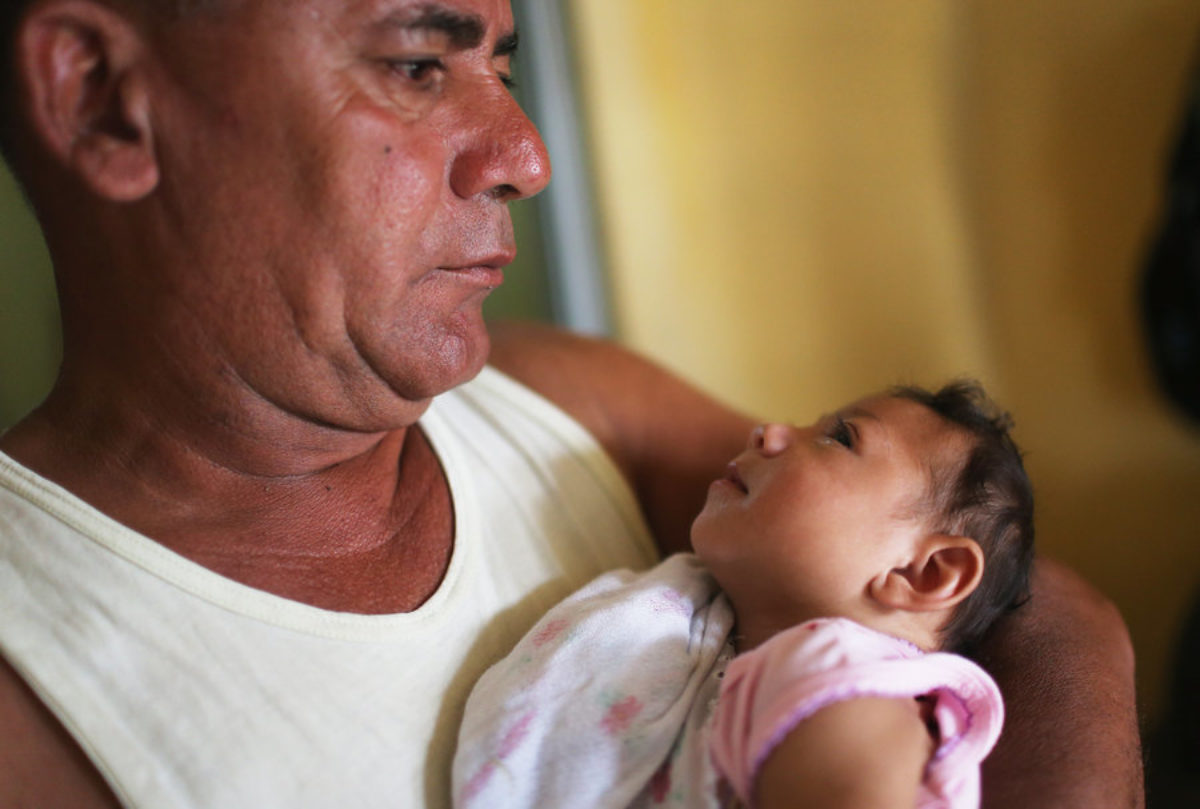Zika virus may linger in babies’ blood for months, with unknown effects
The Zika virus may linger in the blood of an infected baby for more than two months, according to a new study from Brazil that raises concerns about the potential of the virus to continue inflicting damage to an infant’s brain even after birth.
The study also shows that Zika can cause serious harm to babies even if their mothers are infected relatively late in pregnancy. Although Zika is known to cause devastating birth defects in babies — including microcephaly, in which infants are born with abnormally small heads and, in most cases, incomplete brain development — studies have suggested the greatest risk occurs when women are infected early in pregnancy.
In this case, the baby’s mother developed Zika-like symptoms — including a rash, fever, pink eye, headache and joint pain — at 26 weeks of pregnancy, at the end of the second trimester, according to the study, published Wednesday in The New England Journal of Medicine. A typical pregnancy lasts 40 weeks.
The woman gave birth to an apparently healthy boy, with normal weight and length, in January. Although study authors describe him as suffering from microcephaly, his head size — a circumference of 32.5 centimeters — doesn’t meet strict criteria for the condition.
An MRI of the baby’s brain, however, showed that his brain tissue had shrunk, but the fluid-filled spaces between the folds of his brain had grown larger. The baby also had calcifications in his brain, or areas of scar tissue showing where the brain had been injured in the past, according to the study, led by researchers at Brazil’s University of Sao Paolo.
That suggests that the baby suffered brain damage in the womb, said infectious disease expert William Schaffner, a professor at the Vanderbilt University Medical School in Nashville who was not involved in the new study.
Doctors tested the baby for Zika when he was 7 weeks old and again when he was 9 1/2 weeks old. His blood, urine and saliva were positive for the virus both times, according to the study. When doctors tested the baby again at 7 months, he had no Zika in his blood, although he did have antibodies to the virus, showing that his immune system mounted a response to the virus.
Schaffner said it’s surprising that the Zika virus remained in the baby’s blood such a long time. People normally clear Zika from their blood in about a week.
The one exception to this rule seems to be pregnant women. In March, a report in The New England Journal described the case of a woman who was infected with Zika in her 11th week of pregnancy and continued to test positive for the virus until she terminated the pregnancy 10 weeks later, after tests showed that her fetus suffered from extensive brain damage. Doctors have speculated that the woman tested positive for so long because she was repeatedly infected by her fetus, which is normally protected from the immune system.
Zika and other viruses can “hide” in places in the body that are protected from the immune system, such as semen. Authors of a recent study found genetic material from Zika in a man’s semen six months after he was infected.
Still, it’s not clear why the virus persisted in the Brazilian baby’s blood for so long, said infectious disease expert Amesh Adalja.
Adalja, who was not involved in the new study, noted that a newborn’s immune system is immature and isn’t always able to neutralize infections as well as in older children and adults.
The study suggests that Zika virus infections may cause progressive damage over time, Schaffner said.
According to the study, the baby “had no obvious illness” or immune system problem when he was 7 weeks old.
When the baby returned to the clinic for his 6-month visit, however, he was paralyzed on the right side of the body. All of his muscles were tight, without their normal ability to relax. The baby also suffered from developmental delays, although the authors didn’t specify the type of delay. In general, developmental delays for a baby this age could include failure for a baby to to roll over, push up on its arms or sit with support.
The baby’s problems “appear to have progressed” after birth, Schaffner said. Although the baby’s MRI results showed brain abnormalities at birth, that damage took months to become apparent.
A baby’s brain continues to undergo critical development in its first year of life.
The Zika virus began attacking the baby’s brain three months before birth and may have continued its assault after delivery, as well, said William Dobyns, a pediatric neurologist at Seattle Children’s Research Institute.
“Our brains are still developing until age 18 and beyond,” Dobyn said. “The most important year of brain growth is the nine months before birth and the first year after.”
The new study suggests that the baby’s mother was infected with Zika while pregnant.
Authors note that the baby’s father visited the northeastern region of Brazil, which was hardest hit by Zika. He developed Zika-like symptoms about three weeks before the baby’s mother.
Both men and women can transmit the Zika virus to their sexual partners, according to the Centers for Disease Control and Prevention.
The study could have implications for caregivers of people infected with Zika, Schaffner said. He notes that a Utah man was infected with Zika while caring for his elderly father. The father, who died from Zika, had very high levels of the virus in his blood. Because Zika can be found in bodily fluids, it’s possible that the son was infected through care giving. There were no mosquitoes capable of spreading Zika in the area.
If babies continue to harbor Zika for many months after birth, it’s possible that caregivers will need to take precautions to protect themselves, Schaffner said. “The more we learn about this virus,” he said, “the nastier it gets.”
For the complete article visit, http://www.usatoday.com/story/news/2016/08/24/zika-virus-may-linger-babies-blood-months-unknown-effects/89269004/




